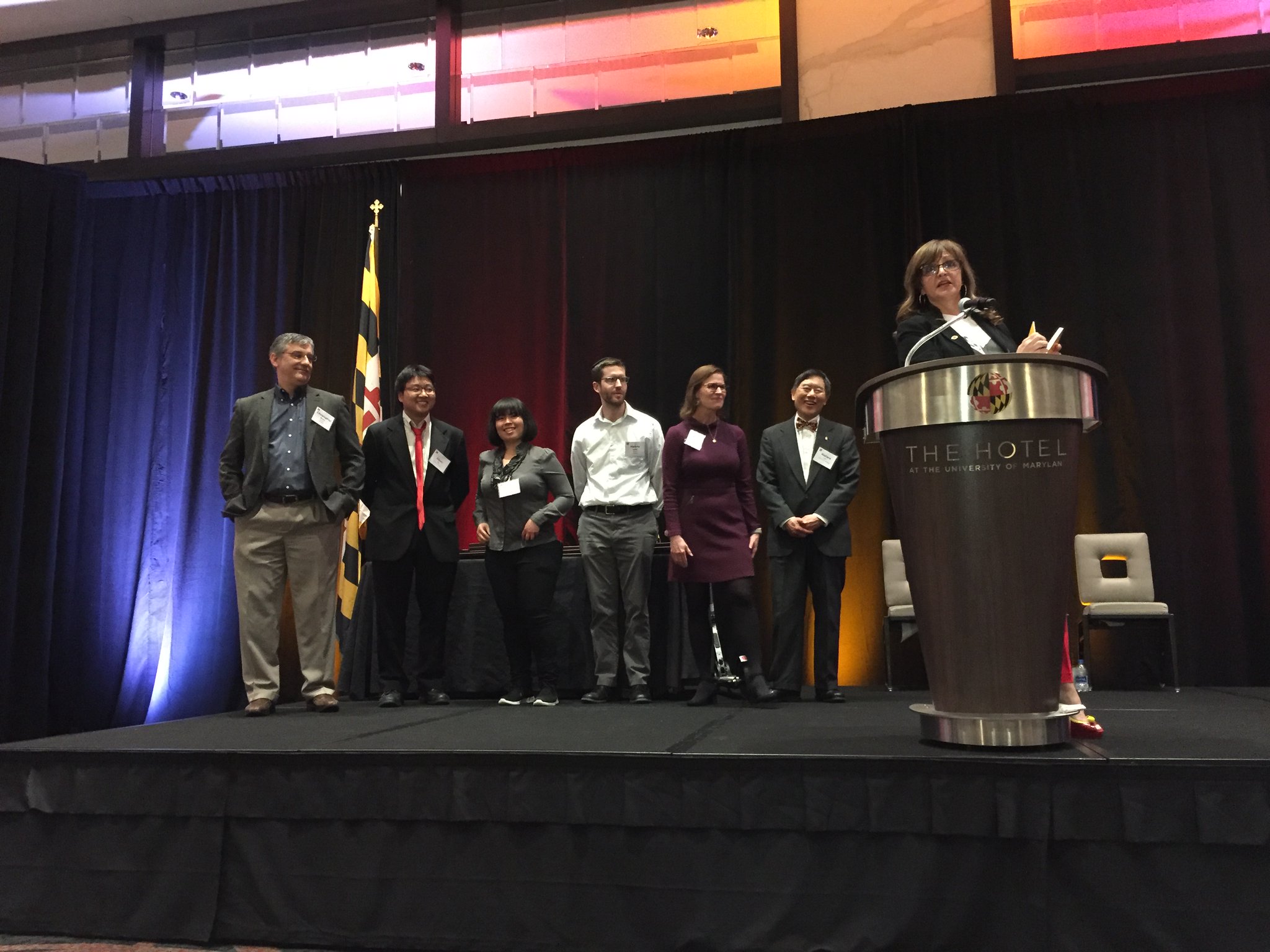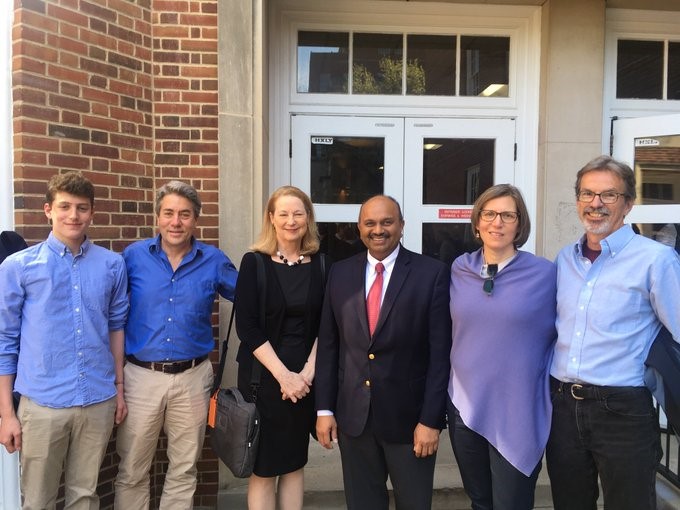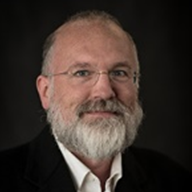UMD Physics Team Receives Invention of the Year Award at Innovate Maryland 2019
- Details
- Published: Thursday, April 18 2019 12:11
 From quantum computing and augmented reality to biomedical advances and innovative new materials, the 2018 Invention of the Year award winners spanned the range of research and entrepreneurship at Maryland.
From quantum computing and augmented reality to biomedical advances and innovative new materials, the 2018 Invention of the Year award winners spanned the range of research and entrepreneurship at Maryland.
Winners in four categories and one overall winner were announced Thursday at the Hotel at the University of Maryland at Innovate Maryland 2019.
“This event is a celebration of all the Fearless Ideas being activated by UMD students and faculty to create solutions that can transform lives,” said UMD Chief Innovation Officer Julie Lenzer. "We also gather to recognize recent accomplishments across our innovation ecosystem, the connective tissue that makes all this possible."
Since 1987, the university has honored exceptional inventions that have the potential to make a transformative impact on science, society and the free market. Vice President for Research Laurie E. Locascio announced that the Office of Technology Commercialization will retire its name and now be known as UM Ventures–College Park.
“This name change is reflective of the university’s expanded efforts to create a seamless environment for the creative output of our research enterprise,” said Locascio.
A panel of judges selected the following winners:
Overall: “Cryogenic Ion Trapping and Storage System for Quantum Information”
- Christopher Monroe, Distinguished University Professor and Bice Sechi-Zorn Professor, Department of Physics and Joint Quantum Institute (JQI)
- Guido Pagano, postdoctoral researcher, Department of Physics and JQI
- Paul Hess, postdoctoral researcher, JQI
- Harvey Kaplan, Ph.D. student, Department of Physics and JQI
- Wen Lin Tan, Ph.D. student, Department of Physics and JQI
- Philip Richerme, former postdoctoral fellow, Department of Physics
Information Sciences: “Augmented Reality Enabled Catheter”
- Amitabh Varshney, professor and dean, College of Computer, Mathematical, and Natural Sciences
- Sarah Murthi, M.D., associate professor of surgery, University of Maryland School of Medicine; trauma surgeon, R Adams Cowley Shock Trauma Center
- Gary Schwartzbauer, M.D., assistant professor of neurosurgery, University of Maryland School of Medicine; neurosurgeon, R Adams Cowley Shock Trauma Center
- Xuetong Sun, doctoral student, Department of Computer Science
Life Sciences: “Novel Method of Internal Organ Generation For Therapy and Research in Humans and Animals”
- Chi-Hun Park, faculty assistant, Department of Animal and Avian Sciences
- Bhanu Telugu, associate professor, Department of Animal and Avian Sciences
Physical Sciences: “Strong and Tough Graphite-Paper Composites”
- Liangbing Hu, assistant professor, Department of Materials Science and Engineering and Maryland Energy Innovation Institute
- Yubing Zhou, professor, Department of Materials Science and Engineering and Maryland Nanocenter
- Chaoji Chen, professor, Department of Materials Science and Engineering and Maryland Nanocenter
- Teng Li, associate professor, Department of Mechanical Engineering and Maryland Energy Innovation Institute
- Robert Foster, executive vice president of development, Trinity Rail Group
Startup of the Year: IonQ, an early-stage quantum computing company co-founded by Monroe and Jungsang Kim, professor in the Department of Electrical and Computer Engineering and the Department of Computer Science at Duke University.


 Gregory S. Boebinger, Director of the National High Magnetic Field Laboratory and a professor at Florida State University, will give the W.J. Carr Lecture on Tuesday, April 9 at 4 p.m. in room 1412 of the John S. Toll Physics Building. His talk is entitled
Gregory S. Boebinger, Director of the National High Magnetic Field Laboratory and a professor at Florida State University, will give the W.J. Carr Lecture on Tuesday, April 9 at 4 p.m. in room 1412 of the John S. Toll Physics Building. His talk is entitled  Google AI
Google AI H. Dennis Drew, Howard M. Milchberg, and Jay Deep Sau have been recognized by the Americal Physical Society as Outstanding Referees for their contributions to the Physics community.
H. Dennis Drew, Howard M. Milchberg, and Jay Deep Sau have been recognized by the Americal Physical Society as Outstanding Referees for their contributions to the Physics community.